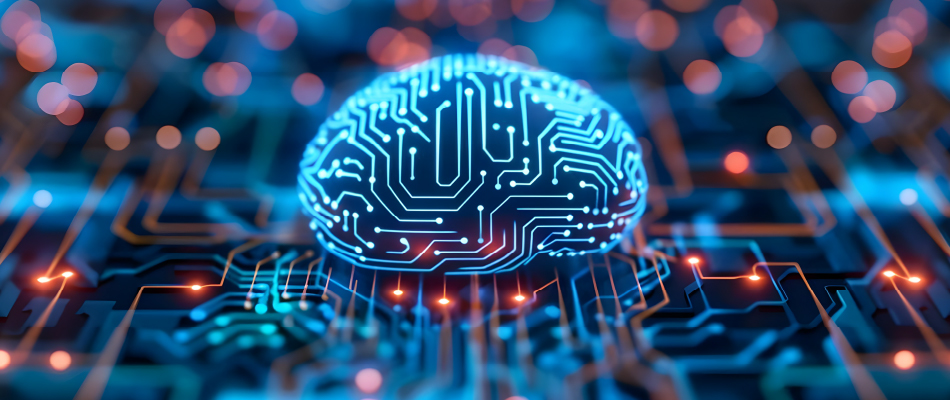Advantages And Disadvantages Of Artificial Intelligence: Discover the Use Case of AI & More

AI has already changed lots of things in our daily lives, ranging from our modes of communication down to how we earn a living or spend our leisure time. While we might be on the verge of a fresh technological period, we must comprehend all the advantages and Disadvantages of Artificial intelligence. In this article, we shall go deep into Artificial Intelligence (AI) technology, where it will be defined, its significance will be explained, and more. We’ll also highlight practical use cases and guide you on how to enhance your career with AI through a specialised AI course from Digital Regenesys.
What is Artificial Intelligence?
Artificial Intelligence is referred to as the simulation of human intelligence processes by machines, particularly computer systems. These processes include learning, reasoning, problem-solving, perception, and language understanding. AI systems use algorithms to perform these tasks, often improving over time as they learn from data inputs.
AI is vital as it can handle complex tasks that are far beyond human capacity, and this can be achieved with the help of AI quickly and accurately. Sectors like healthcare, finance, and transportation have felt an intense impact due to AI, thereby promoting innovation effectiveness and opening up new possibilities. Its potential for transforming different industries makes AI a critical area in which researchers explore more about how they can apply it to various settings. Additionally, by making use of huge volumes of information, AI allows for personalised experiences and customised decision-making processes, thereby increasing the dependability of automated work. As we learned about what AI is, let us also know what are the advantages and disadvantages of artificial intelligence.
Advantages of Artificial Intelligence
Artificial Intelligence (AI) offers numerous advantages, including enhanced efficiency and accuracy in performing complex tasks, which surpass human capabilities. It drives innovation across various industries by automating repetitive processes, enabling data-driven decision-making, and providing personalised experiences. AI also improves predictive analytics, reduces human error, and opens new possibilities for advancements in technology, making it a crucial asset in the modern world. Some of the advantages of AI are as follows:
- Increased Efficiency: AI can process vast amounts of data quickly and accurately, leading to higher productivity and efficiency in tasks such as data analysis and decision-making.
- 24/7 Availability: Unlike humans, AI systems can operate continuously without fatigue, ensuring constant availability and reliability.
- Enhanced Precision: AI algorithms can perform tasks with a high degree of accuracy, reducing errors and improving outcomes, particularly in areas like medical diagnostics and financial forecasting.
- Cost Savings: By automating repetitive and time-consuming tasks, AI can significantly reduce operational costs for businesses.
- Innovation and Creativity: AI can analyse patterns and trends that may be invisible to humans, leading to new insights and innovative solutions in various fields.
Disadvantages of Artificial Intelligence
Artificial Intelligence (AI) presents several disadvantages, such as the potential for job displacement due to automation and the reduction of human roles in various sectors. It raises ethical concerns, including privacy issues and biases in decision-making processes. Some of the disadvantages are as follows:
- Require High Implementation Costs: Developing and deploying AI systems can be expensive, requiring significant investment in technology and expertise.
- Job Displacement: Automation of tasks through AI can lead to job losses, particularly in roles that involve repetitive or routine tasks.
- Ethical Concerns: AI raises ethical issues related to privacy, surveillance, and decision-making autonomy, sparking debates about its responsible use.
- Lack of Human Touch: While AI can simulate human interactions, it lacks the emotional intelligence and empathy that come naturally to humans, which can be critical in areas like customer service.
- Dependency and Vulnerability: Over-reliance on AI systems can lead to vulnerabilities, especially if the technology fails or is compromised, potentially causing significant disruptions.
AI Technology in Different Industries
Artificial Intelligence (AI) has numerous cases across various industries, enhancing efficiency and innovation. Also note that the AI enables autonomous vehicles and optimised logistics, and in customer service, it powers chatbots and virtual assistants. Additionally, AI enhances predictive maintenance in manufacturing and boosts personalised recommendations in e-commerce, showcasing its versatile applications. Some of the use cases of AI are as follows:
- Healthcare: AI is revolutionising healthcare by enhancing diagnostics, personalising treatment plans, and improving patient outcomes. For example, AI algorithms can analyse medical images to detect diseases like cancer at early stages with higher accuracy than human doctors.
- Finance: AI is used in the financial sector for fraud detection, risk assessment, and automated trading. AI-driven systems can analyse transaction patterns to identify fraudulent activities in real-time, protecting both consumers and financial institutions.
- Customer Service: AI-powered chatbots and virtual assistants are transforming customer service by providing instant responses and resolving queries efficiently. These tools can handle a high volume of inquiries simultaneously, improving customer satisfaction and reducing wait times.
- Transportation: AI is at the forefront of developing autonomous vehicles, enhancing traffic management systems, and optimising logistics. Self-driving cars use AI to navigate roads safely, reducing accidents and improving transportation efficiency.
Boost Your Career in Artificial Intelligence with Digital Regenesys AI Course
If you’re looking to advance your career in the dynamic field of AI, the Artificial Intelligence course from Digital Regenesys offers the perfect opportunity. This comprehensive course online covers essential AI concepts, practical applications, and the latest industry trends. By enroling, you’ll gain hands-on experience with cutting-edge tools and techniques, enhancing your skills and employability in this high-demand sector. The course is designed to equip you with the knowledge and expertise needed to excel in AI, opening doors to exciting career opportunities. For more information, you can visit Digital Regenesys

Last Updated: 11 September 2025

